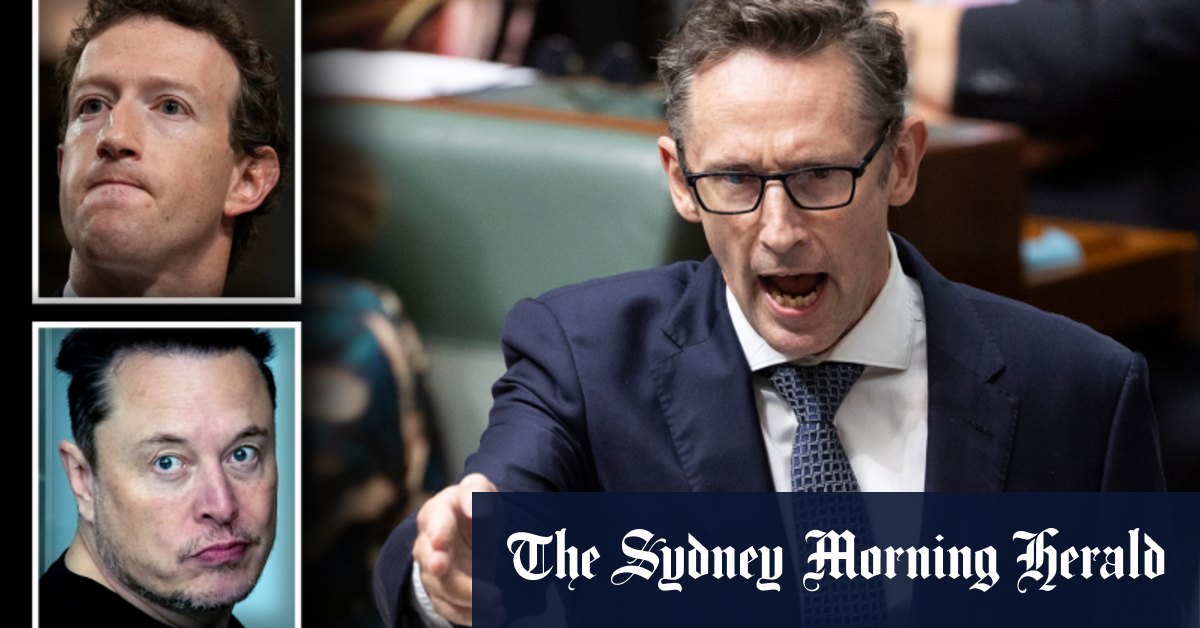Jones and Communications Minister Michelle Rowland recently discussed Meta’s move with the ministers’ Canadian counterparts in Prime Minister Justin Trudeau’s government.
Canada has announced a digital services tax that captures tech platforms, though it has not said the revenue will directly fund media. Some Australian publishers are pushing for a tax or levy to fund journalism or a law forcing the platforms to carry news.
Loading
Jones said he had discussed Canada’s arrangements with his counterparts and would soon receive official advice about “gaps or holes” in the news bargaining code developed by former treasurer Josh Frydenberg in 2021.
Meta blocked news content, and some emergency services pages, for a few days in 2021 at the height of nationwide border closures and COVID lockdowns as the tech giant negotiated with the government.
Meta and Google ultimately agreed to pay about $200 million to media companies – including Nine, owner of this masthead – and the bargaining code was never tested.
Loading
Meta, worried about the global precedent set by Australia’s rules, has refused to sign new deals and revealed the strength of its resolve through its response to the Canadian laws, which were modelled on Australia’s. Google, which relies more heavily on news, has agreed to strike new deals in Australia.
Jones is awaiting advice from the competition watchdog on whether to put the code to use by “designating” Meta and forcing a drawn-out regulatory process to compel payment. Meta has told Jones it will block news if he takes this action, and smaller publishers such as Broadsheet and The Daily Aus want Jones to avoid taking this course.
The assistant treasurer said he was determined to create a new model to fund journalism that was sustainable and avoided rolling crises after each deal expired, hinting the government was looking at alternative measures that went beyond the Morrison-era code.
Former Liberal treasurer Peter Costello – chairman of this masthead’s publisher, Nine – said earlier this year that Meta’s refusal to strike new deals created an “existential moment” for journalism. News Corp Australia executive chair Michael Miller warned it would lead to job cuts.
Meta rejects the idea that it unfairly benefits from news content on its feeds and argues it actually boosts media revenue by diverting traffic to their news sites. The Zuckerberg-owned firm also says its audience has become more focused on community networks rather than news.
Loading
Organisations in favour of the media bargaining laws argue they are a fair way to keep local journalism alive and give users reliable information, but tech giants claim any requirement to pay news organisations to link to their articles breaches the spirit of an open internet. They also worry about other companies using the laws to seek payment for posting their content.
Canadian researcher Taylor Owen, of McGill University, said Meta’s decision to block news had led to profound changes in how the country’s citizens accessed information.
“The news being talked about in political groups is being replaced by memes,” he told Reuters news agency. “The ambient presence of journalism and true information in our feeds, the signals of reliability that were there, that’s gone.”
Cut through the noise of federal politics with news, views and expert analysis. Subscribers can sign up to our weekly Inside Politics newsletter.
Read More: World News | Entertainment News | Celeb News
SMH
